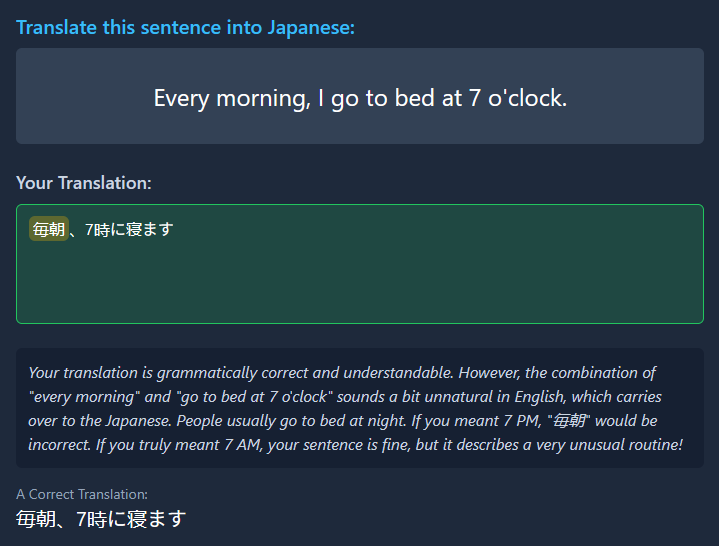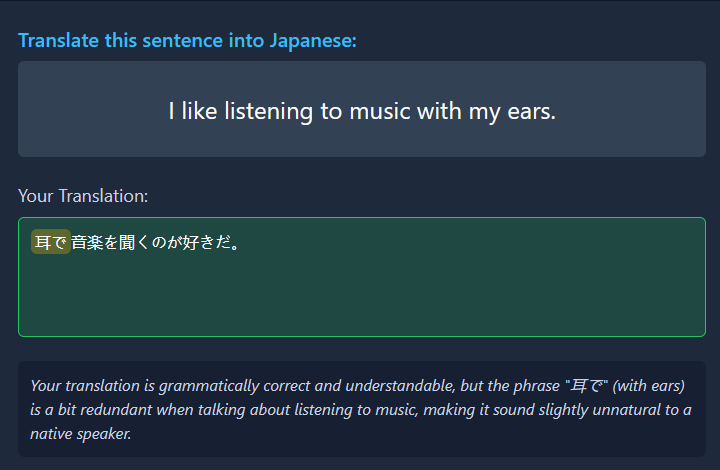That’s fair. I’ll try to formulate my own thinking about it though I’m also struggling with understanding how I feel about all this. Let’s say you are currently learning Japanese. Your roommate and best friend is a pretty good Japanese speaker as a second language, but not a native speaker (let’s say their Japanese is about the same level as my English). They definitely make mistakes and you can’t fully trust their advice, but they are available to you almost all the time. You also have much more reliable sources (e.g., a Japanese teacher on italki, or your Japanese coworker) but your access to them is much more limited (e.g. you have a lesson with them once a week, or you only see them at work and feel much less comfortable asking them for advice about the language).
Would you avoid speaking Japanese with your roommate because they might give you the wrong advice? Or will you prefer to speak Japanese with them during the day to practice, since they are fully available and know Japanese pretty well, but know that you shouldn’t rely on them exclusively?
I think for me my approach to using LLM with my language studies is like getting advice from this friend/roommate. I know I can’t fully trust them, but I can still get some practice and useful information from them as long as I take it into account.



 but that’s okay!
but that’s okay! (I’m mostly joking…mostly…)
(I’m mostly joking…mostly…)



